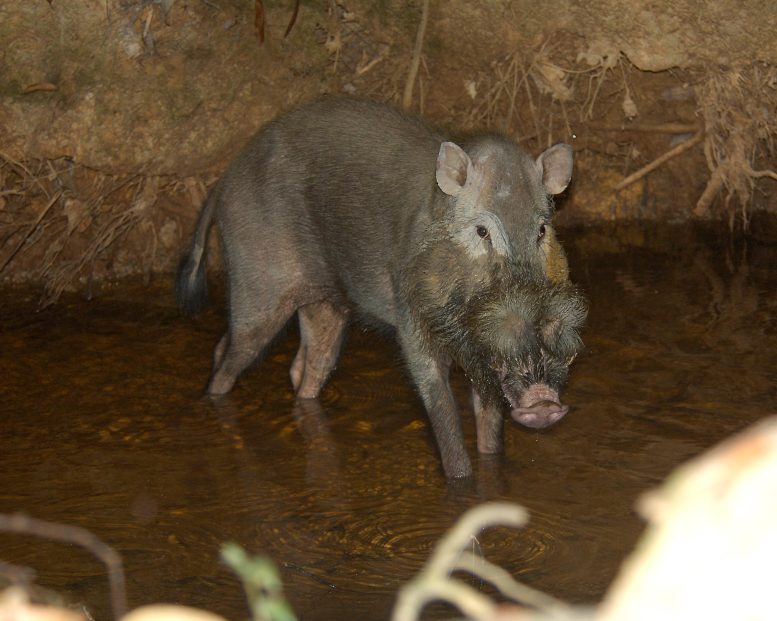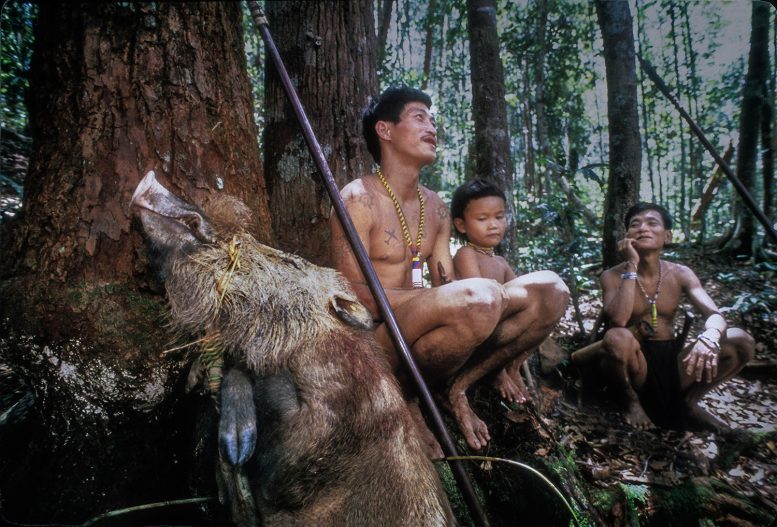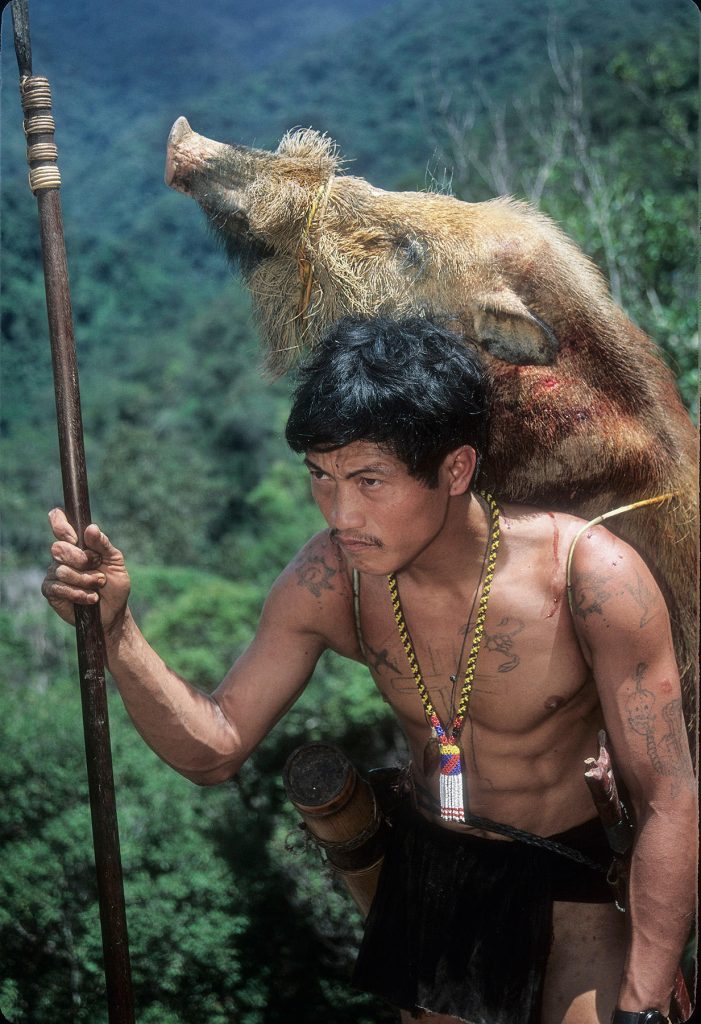
The global outbreak of African Swine Fever (ASF) presents a critical challenge, threatening swine populations, food security, and socio-ecological systems, particularly in vulnerable communities. Urgent action and a shift in global priorities are essential to address the underrecognized impacts of ASF on global health and conservation. Credit: Graham Usher
African Swine Fever is causing widespread devastation in the forests and communities of Borneo.
A virulent and highly infectious virus is rapidly spreading among domestic and wild pig populations globally, causing widespread devastation in Asia, Europe, and Africa. With a fatality rate approaching 100%, this outbreak poses significant threats to food security, ecosystems, and the livelihoods and cultural practices of millions. African Swine Fever (ASF) is probably the most devastating viral disease you have never heard of.
Cultural practices centuries-old are at risk of extinction. Diets are dramatically shifting, placing an unsustainable burden on an already strained socio-ecological environment. Low- and lower-middle-income countries are bearing the brunt of this catastrophic pandemic, but few seem to care beyond the protection of domestic pork production. Would it be the same if experts were to predict that not a single American household would celebrate Thanksgiving with a turkey in 2024?
Underestimated Socio-Ecological Disaster
A recent letter in the journal Science warns that this socio-ecological disaster is currently overlooked and receiving insufficient attention. Professor Erik Meijaard, the letter’s lead author and former chair of the IUCN Wild Pigs Specialist Group, a global pig conservation group, commented that “ASF has devastated pig populations in Asia since 2018, but the impacts are especially significant on the island of Borneo. ASF has led to local population crashes of bearded pigs, once the most numerous large mammal species on the island, of up to 100%.” Meijaard thinks that this decline may render the species Critically Endangered, an international conservation status verging on extinction.
Bearded pigs play an essential role in ecosystem maintenance and socio-cultural practices. As a major seed predator, the once numerous pigs played an important role in steering ecological processes in Borneo’s tropical forest. Local hunting studies indicate that bearded pigs constituted up to 81% of hunted wildlife weight in some villages, while Malaysian Sarawak once harvested up to a million bearded pigs each year. How can the loss of such an integral species be overlooked? Especially when there is no evidence indicating that wild pig populations in Borneo, or other Southeast Asian islands can fully recover.
The current letter calls for urgent research and interventions, with the participation of rural communities, focusing on preventing the spread of African swine fever to other regions where people fundamentally depend on pigs, such as the island of New Guinea, where the loss of pigs could mean social collapse. The indigenous people of these lands have such close ties to pigs, that tribeswomen have been known to nurse piglets as their own.
Ongoing clinical trials for the development of an effective vaccine against ASF are showing positive results. Professor Benoit Goossens of Cardiff University, one of the co-authors, however, pointed out that this is mostly relevant for domestic pigs: “Vaccinating wild pigs would require a whole different setup, such as oral vaccination with baits, which is far from being ready. Also, baiting wild pigs across Borneo would be logistically hugely complex and expensive to implement,” he commented.
Need for Global Reevaluation
Something needs to be done urgently. Failing to acknowledge the socio-economic significance of the virus in low-income demographics, such as the indigenous tribes of Borneo, could result in the irreversible loss of species and the ecosystems, cultures, livelihoods, and communities they support.
Raising the profile of neglected tropical diseases is a longstanding priority of global health governing bodies. However, the continued pressure that we exert on the natural world threatens human lives in ways that go beyond zoonotic transmission of disease. Recognizing that a virus which cannot infect humans, in its present state, could have catastrophic consequences for millions of people, especially those whose relationship with nature is profound and all-encompassing, necessitates a fundamental shift in global priorities. While such a change requires a massive overhaul of existing systems, it could all begin with acknowledging ASF and providing the virus and the communities it impacts with the attention it deserves.
Reference: “Pig virus imperils food security in Borneo” by Erik Meijaard, Andi Erman, Marc Ancrenaz and Benoit Goossens, 18 January 2024, Science.
DOI: 10.1126/science.adn3857











Would it be the same if experts were to predict that not a single American household would celebrate Thanksgiving with a turkey in 2024. Yep must be the USA’s fault. Garbage
He’s not saying that it is the USA’s fault. He is trying to offer a context to allow Americans to appreciate and have empathy for the magnitude of the problem. That is, Thanksgiving is part of our cultural heritage and we would sorely miss not having Turkey to eat. Sometimes Americans can be insensitive, which is how we have earned the moniker of “Ugly American.”
True. It does say “to care”, not blame. To me it sounded as if Americans should intervene, but the focus on vaccines is expecting pharmaceutical companies to care. Borneo Futures is an advocacy group in Brunei on Borneo, so it does seem like they’re asking for help.
It’s unexpected for any virus to have “a fatality rate approaching 100%”, self-limiting the spread. However, this disease is probably tick-borne, and as with Lyme disease, it can seem impossible to extinguish the viral reserves in wildlife.
I’ve seen vaccination in wild deer being done with baits. I checked, and there are candidate vaccines from Vietnam and the United States. The disease ravaged livestock in Eastern Europe, but seems to have been controlled somehow in Europe.
Borneo is achingly beautiful, with great people who have a lot of culture to share. I hope this works out somehow, with evolving natural resistance or vaccines.
Oh no as soon as you say something in regards to the US it’s garbage. Must be an American making that comment lol
oh no the cultural practice is what will we do?
Like I get that. it’s an interesting fact oid that people won’t be able to do whatever it is they do with pigs normally given the scale presented here, I feel like that’s so irrelevant in comparison to the material problem of just food and ecosystems that nobody should even be thinking about it. erase it from your brain because the actual issue is that the pigs are going to be dead and there’s just not going to be any pigs for people to eat.
Sounds like another invention of the Gates Foundation, no doubt but that the bird flu was another one of their great success stories, hardly any surprise then that most Americans die from being murdered by their adult children.
Speaking of the USA, never forget that a virus jumped from a pig in a pig pen to a cook at a US army base back around 1917. The consequent influenza epidemic is estimated to have killed between 20 million and 50 million people, young and old, in around 6 years.That was the “Spanish” ‘flu.
Covid-19 has shown us how utterly unwilling we are to suffer the inconvenience of quarantine to prevent a world-wide continuing pandemic that, so far, has killed merely 6-7 million people (and crippled many with Long Covid) in 3 years. Time to research manufacturing an open-source human vaccine for the “Borneo” Swine. “flu”